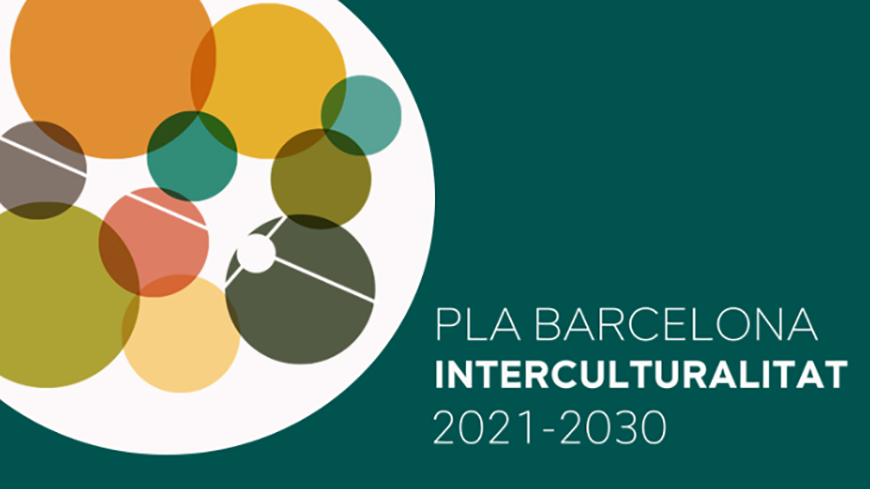The new Action Plan adapts the intercultural action of the city to the decade to come.
The overall objective of the new Action plan is to move towards a more intercultural city based on the principles of effective equality, recognition of diversity, positive interaction and intercultural dialogue, in order to build a more inclusive, dynamic and fair Barcelona, and to fight against discrimination by promoting social cohesion, equity and peaceful intercultural coexistence. The plan aims to tackle the structural causes that perpetuate the social and economic inequalities that have been detected through a previous diagnostic, and that are linked to the diversity of origins of the residents. So as the previous action plan, the new one has been drawn up with the intention of being implemented over a decade and will therefore be in force from 2021 to 2030.
Some figures
Since 2010 the social and cultural diversity of the city has increased. Currently, 27.8% of the residents of Barcelona are foreign-born (almost 7% more than in 2010); they come from 183 countries. In addition, more than 300 languages are spoken in the city and there are places of worship of 25 religious denominations.
The previous action plan had been drawn after assessing the challenges the city was facing ten years ago. Similarly, the new plan has been drafted after a careful assessment of the current situation and draws upon the lessons learned so far.
The diagnostic that has been carried out shows inequalities in the impact of both the economic and financial crises of the last decade, and the COVID-19 pandemic. Some people and groups face more than others the collateral effects of extreme situations. Among the inequalities detected, there are those linked to the legal framework to access rights and services. The diagnostic also revealed barriers to equal access to spaces and municipal facilities of proximity that are not adapted to the diverse reality of the city, either by the way in which the services are advertised and provided, or by the schedules of opening of the related municipal facilities, for example, of civic centres, community centres, sports centres or centres for the elderly.
In the educational field, the diagnostic also reflects an increase in the vulnerability of students of foreign nationality and shows higher values of early school leaving among those.
Finally, more racist and xenophobic situations have also been detected and recorded, something which is particularly worrying in the workplace or in accessing housing. In short, the diagnosis reflects a situation of coexistence of diversity, rather than coexistence and positive interaction.
The Action Plan
Among the main goals, the Action Plan aims to transforming the city administration which, for the moment, does not mirror the diversity of the citizens (only 1.4% of the municipal staff are foreign-born). Therefore, the City Council has designed governance instruments to introduce diversity in the municipal workforce through the incorporation of employees from different backgrounds, as well as through specific training programmes to improve the intercultural skills of civil servants.
Besides, the Action Plan intends to mainstream the intercultural lens across all government’s sectors and actions, as well as strengthening inter-territorial cooperation within the districts.
The City Council is already in the process of adapting its internal structure and creating the governing body responsible for the inter-territorial cooperation on interculturality via the Interdepartmental Commission for Interculturality. The latter will meet twice a year and will be chaired by the Mayor's Office for Culture, Education, Science and Community, with the participation of the different areas and districts of the City Council.
These governance instruments will be deployed in parallel to the Barcelona Interculturality Plan by means of a government measure during this mandate.
Finally, in order to be able to monitor the implementation of the Action Plan, the City Council will adapt its data collection tools and indicators to include diversity variables that allow for a continuous analysis and evaluation.
Consult the Barcelona Intercultural 2021-2030 plan (in Spanish).




